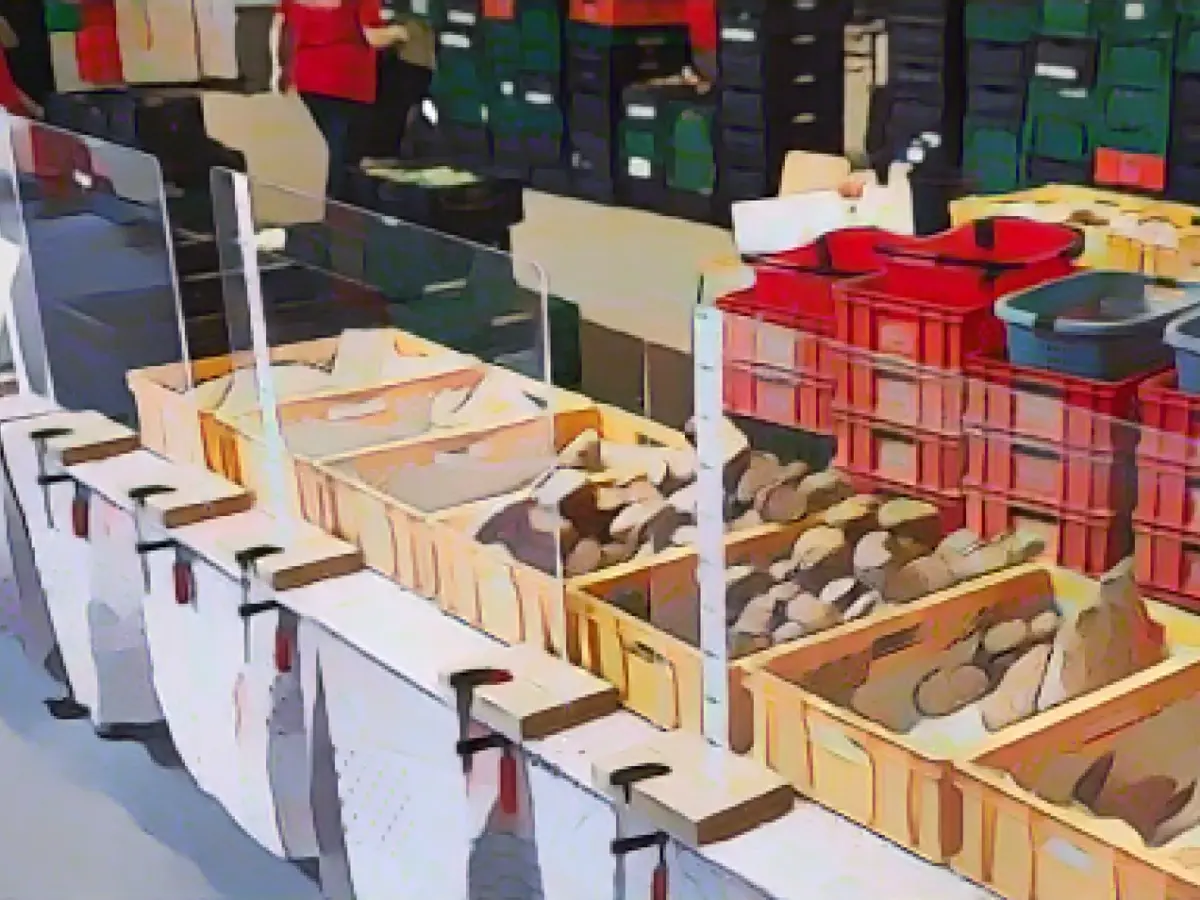Food - Food banks in permanent crisis: particularly high demand in large cities
Large crowds, but less donated food: the pressure on food banks in Germany is high. "Our food banks are in permanent crisis mode," said Andreas Steppuhn, Chairman of the umbrella organization Tafel Deutschland, to the German Press Agency. First the war in Syria, then the coronavirus pandemic and finally the Russian war of aggression against Ukraine have further exacerbated the situation in recent years. "Poverty in Germany is increasing - and noticeably so," said Steppuhn.
According to the data, there are currently 973 food banks that support up to two million people. Since the start of the war in Ukraine in February last year, food banks have reported an average of 50 percent more customers. "This varies greatly from region to region," said Steppuhn. The rush is particularly high in the big cities.
"High inflation is putting a strain on both people and the food banks themselves," the chairman continued. "It's not just refugees who are coming to us, but now pensioners, single parents and people in the low-wage sector." Customers are often very ashamed of having to go to a food bank. "The people who come to the food bank are in real need and think three times before queuing at the food bank."
Reducing food waste has become an important issue in Germany - but with consequences for the food banks. "Of course, we generally welcome it when less food is thrown away and supermarkets and discounters work more sustainably," said Steppuhn. "But of course it means that the food banks have fewer food donations and more customers at the same time." According to the information provided, foodstuffs such as rice and pasta, which tend to be donated less frequently due to their long best-before date, are particularly in demand.
According to the umbrella organization, the first German food bank was founded in Berlin 30 years ago. 60,000 helpers, 90 percent of whom are volunteers, are involved in the food banks across Germany, as Steppuhn reported. "We actually need a lot more, the food bank volunteers are at their limits."
If there is no longer enough food on site or opening hours have to be reduced, this is very hard on the volunteers. At the same time, however, the food banks have also experienced a lot of solidarity - which has also been reflected in the monetary donations. The TV lottery alone supported Tafel Deutschland at the beginning of the year with a grant of 23 million euros. The entire sum had already been applied for, which had helped many food banks a great deal.
Steppuhn emphasized that the Tafel is a voluntary organization and not a state institution. His demand: "What we expect from politicians is that poverty is finally combated effectively, because as food banks we cannot solve everything."
Michaela Engelmeier, Chairwoman of the German Social Association, explained in response to an inquiry that the high number of food bank customers speaks for itself. "We need wages and pensions that people can actually live on - that includes a minimum wage of 15 euros," she said. "As long as that doesn't happen, millions will have to top up their fridge at the food bank."
Tafel Germany Social Association Germany
Read also:
- A clan member is punished here
- Traffic lawyer warns: Don't talk to the police!
- Will he be convicted as Jutta's murderer after 37 years?
- He also wanted to kill his cousin
- Despite the ongoing Coronavirus pandemic, inflation in Germany is putting additional strain on food banks, leading to fewer food donations and an increase in demand.
- The Chairman of Tafel Deutschland, Andreas Steppuhn, highlighted that war in Syria, the coronavirus, and the conflict in Ukraine have contributed to a permanent crisis in food banks, leading to a surge in poverty in Germany.
- A single parent living in a big city might be one of the people turning to food banks, as they experience increased financial difficulty due to high inflation.
- According to Steppuhn, food banks in Germany are receiving 50% more customers since the start of the war in Ukraine, with big cities like Berlin being particularly affected by the crisis.
- The growth in demand for food banks in Germany is not just due to refugees but also individuals such as pensioners and people in the low-wage sector, who are also struggling to make ends meet amidst high inflation.
- The German Press Agency reported that the German Social Association, led by Michaela Engelmeier, has suggested that effective poverty reduction efforts from politicians could help alleviate the reliance on food banks in Germany.
Source: www.stern.de








